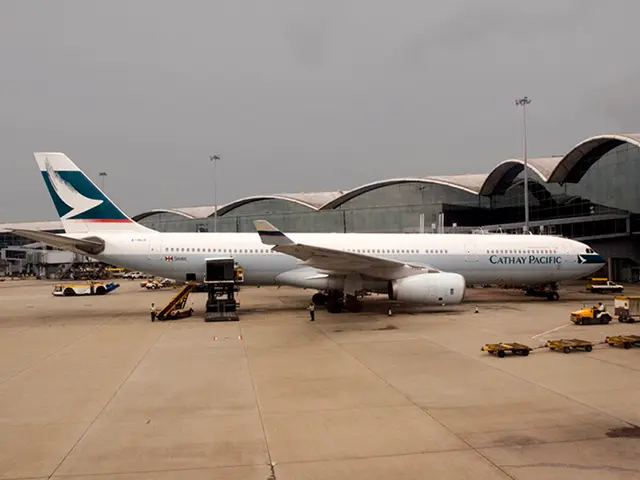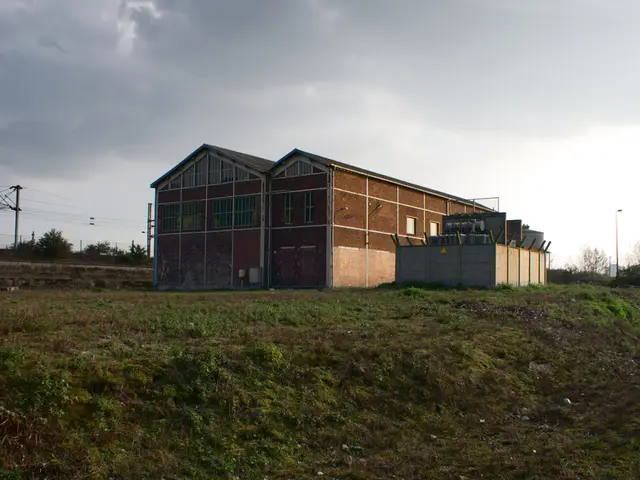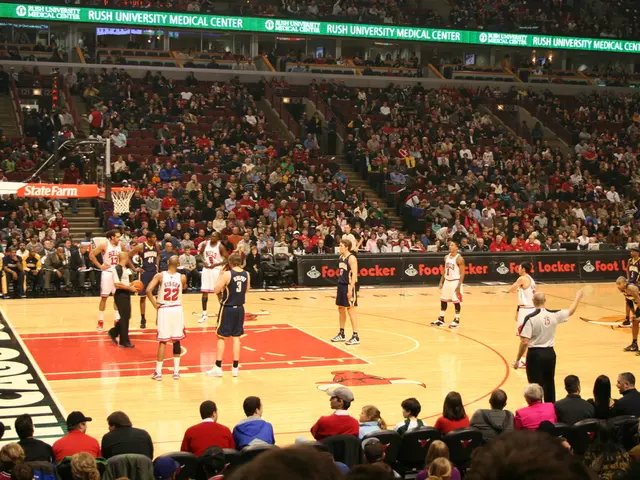White House Bats Back at Court Over Tariffs, Calls Ruling 'Executive Overreach'
Trade tariffs imposed by Trump face legal challenge as federal appeals court momentarily halts trade judgment
Karoline Leavitt, White House press secretary, slams 'egregious court decision' on Trump-era tariffs.
Yesterday, a federal appeals court extended President Donald Trump's tariffs for now, contradicting a court's previous ruling the day before, stating the president had overreached his authority by imposing these tariffs.
In its verdict, the U.S. Court of Appeals for the Federal Circuit temporarily stayed any permanent injunctions entered by the Court of International Trade on May 28, giving the tariffs a reprieve until at least June 9. The court can issue an order of enforcement after this date.
Responding to the United States's motions for a stay, the decision reads, "Plaintiffs-appellees are directed to respond no later than June 5, 2025. The United States may file a single, consolidated reply in support no later than June 9, 2025."
*TRUMP GRANTS EU TARIFF EXTENSION AFTER 'GOOD CALL' WITH URSULA VON DER LEYEN*
During Donald Trump's presidency, he issued tariffs against various countries, including partners in the European Union.
On May 28, 2025, the Court of International Trade ruled that Trump had exceeded his authority over tariffs under the International Emergency Economic Powers Act (IEEPA). The court argued, "The Constitution assigns Congress the exclusive powers to 'lay and collect Taxes, Duties, Imposts, and Excises' and to 'regulate Commerce with foreign Nations.'"
"The question in the two cases before the court is whether the International Emergency Economic Powers Act of 1977 ('IEEPA') delegates these powers to the President in the form of authority to impose unlimited tariffs on goods from nearly every country in the world," the court elaborated. "The court does not read IEEPA to confer such unbounded authority and sets aside the challenged tariffs imposed thereunder."
*JUDGE RULES TRUMP ACTED LAWFULLY IN CHINESE TARIFFS, COURT WIN FOR WHITE HOUSE*
The three judges who presided over the case were appointed by former Presidents Ronald Reagan, Barack Obama, and Donald Trump himself. The panel quickly made its decision, skipping the plaintiff's temporary requests for injunctive relief and moving straight to the merits, vacating the tariffs and permanently enjoining them from enforcement.
The panel wrote, "The court holds for the foregoing reasons that IEEPA does not authorize any of the Worldwide, Retaliatory, or Trafficking Tariff Orders. The Worldwide and Retaliatory Tariff Orders exceed any authority granted to the President by IEEPA to regulate importation by means of tariffs. The Trafficking Tariffs fail because they do not deal with the threats set forth in those orders."
The Trump administration quickly appealed the court's decision.
*TRUMP THREATENS 25% TARIFF ON IPHONES, 50% TARIFF ON EU GOODS AMID TRADE TENSIONS*
President Donald Trump's administration imposed 25% tariffs on imported steel and aluminum.
The White House told FOX Business on May 29, 2025, that the ruling is a positive development. Spokesperson Kush Desai commented, "The Federal Circuit Court's administrative stay on the Court of International Trade's ruling is a positive development for America's industries and workers. The Trump administration remains committed to addressing our country's national emergencies of drug trafficking and historic trade deficits with every legal authority conferred to the President in the Constitution and by Congress. Regardless of the developments of this litigation, the President will continue to use all tools at his disposal to advance trade policy that works for all Americans."
While the fate of Trump's tariffs remains uncertain as the legal status is under review, importers affected by these tariffs can seek refunds for covered goods by filing post-summary corrections or protests with U.S. Customs and Border Protection. This is a result of recent modifications to the Harmonized Tariff Schedule of the United States (HTSUS).
- The White House, in its response to the United States Court of Appeals for the Federal Circuit's decision, maintains that issues related to tariffs significantly impact the economy and are a matter of policy-and-legislation, with taxes being closely tied to duties and tariffs.
- Amidst the political debates surrounding the tariffs imposed by President Donald Trump, the markets have shown a consistent interest in general news related to these trade policies and their potential implications for wealth and investments in various sectors.
- The ongoing litigation over Trump's tariffs has attracted attention from various sectors, with politics playing a significant role in shaping the discourse around trade and economic policy, as well as the interpretation of laws and legislations such as the International Emergency Economic Powers Act (IEEPA).








